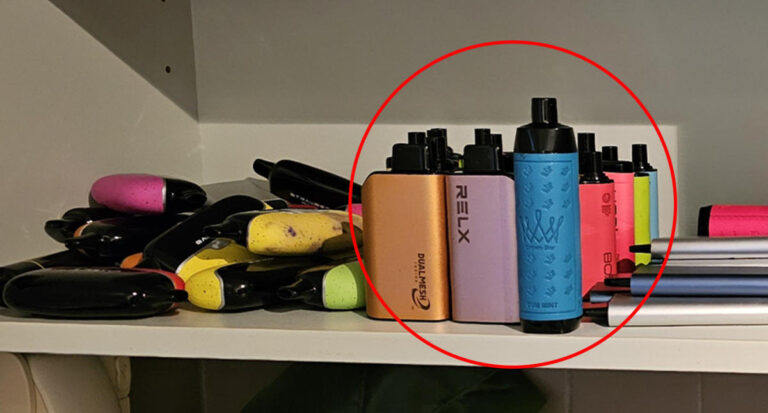Almost everyone knows someone who uses e-cigarettes. They are extremely popular among young people, and many studies have linked e-cigarettes to increased nicotine consumption among young people.
It's estimated that nearly two million Australians now use e-cigarettes, but one of the country's leading tobacco experts, Dr Colin Mendelsohn, says few know how to dispose of them – which end up in landfill or, worse, incinerated due to their dangerous mix of lithium-ion batteries and toxic chemicals.
This week, Melbourne vapers asked that very question on social media, saying they needed to get rid of their old vapes. [and] I didn't want to blow up the local garbage truck.
“I've been vaping for a while but I don't know where to throw them away,” the Victoria man admitted. “I'm scared if I throw them in the bin the garbage truck will explode and I'll end up in jail. Does anyone know anyone who would take them?”
Mendelson said the question is not uncommon, but the answer is pretty simple.
So how do you properly dispose of e-cigarettes in Australia?
Mr Mendelson said the Melburnians' questions reflected a general lack of education about e-cigarettes across the country, one that could easily be remedied with an “awareness campaign”. He rejected claims that e-cigarettes had to be taken apart and disposed of in their individual parts, saying most people could actually take them to their local supermarket for recycling.
“If you go to Woolworths or Coles they have battery recycling bins,” he suggested. “There are government-run battery recycling programs and various recycling bins, but the problem is people don't do it.”
“People are buying e-cigarettes from black market vendors and they're not going to participate in recycling programs. But if you have a legal market that requires recycling and you offer incentives to people, like a discount on their next e-cigarette purchase, you can really educate people properly.”
Mr Mendelson criticised the government's new e-cigarette ban laws which came into force in July and said Australia would benefit greatly from an awareness campaign about e-cigarettes, particularly how to dispose of them.
“E-cigarettes can be recycled. People just don't know that they can.”
The problem, according to Mendelson, comes down to education. “The government doesn't do anything,” he says. “They talk about recycling, they have policies and official positions on how to dispose of TVs and computers, but there's very little public information about how to properly dispose of these products.”
Mendelson argued that while there is no doubt that e-cigarettes are harmful to human health, the impacts of the alternative, cigarettes, are overwhelmingly worse. He said that while the environmental impact of e-cigarette products is much lower than that of cigarettes, e-cigarettes are a real source of litter and fire hazards, and can cause soil and water contamination from leaking chemicals.
“It's not like brain surgery – you just put it in a battery recycling bin, not in your household bin or on the street. But because these products are bought on the black market, there are no established procedures or processes for recycling,” he said.
“Additional waste to landfills is always an issue, but the biggest concern is fire.
“When these containers are collected by truck and compacted, fires often break out in the back of the truck or in waste disposal facilities. By the way, this doesn't just apply to e-cigarettes, but to all lithium-ion batteries. Fires are common in waste disposal centers and can last for years.”
“There is also concern about leaching of toxic chemicals, some of which will leak into environmental water systems and pose some toxicity, but nothing on the same level as cigarette butts, which are far more toxic.”
Have a story tip? Email: Newsroomau@yahoonews.com.
You can also follow Facebook, Instagram, Tick tock, twitter and Youtube.


